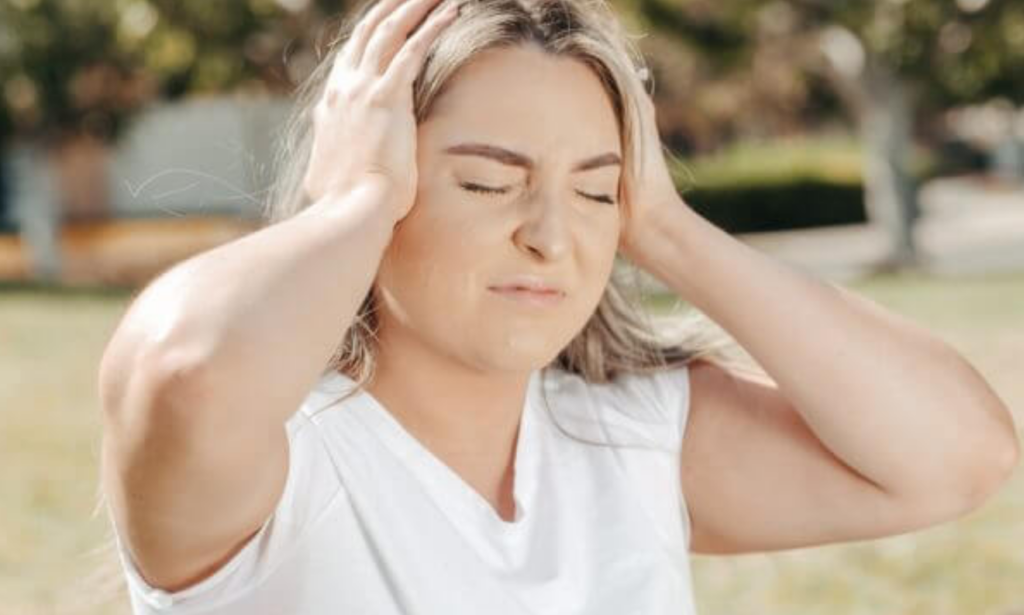By Amy Chodroff
If you suffer from migraine headaches, you know how debilitating they are. They can go on for days, causing you to miss work and be unable to perform daily activities. While many people seek prescription or over-the-counter medications for relief, medical experts say there are also several home remedies. These remedies can help manage or reduce the frequency and severity of migraines. StudyFinds has determined some of the best natural migraine remedies and strategies to help relieve pain as quickly as possible.
Scientists say sticking to a diet rich in Omega-3 fatty acids is one way to help reduce the severity and number of migraines patients suffer each month. A recent study found this nutrient found in fish or dietary supplements may ease everything from inflammation to asthma and heart disease. On the flip side, doctors say oxylipins from Omega-6 fatty acids, found in walnuts, eggs, and mayonnaise, can worsen pain and trigger a migraine.
Holistic approaches to managing migraines aim to address the whole person, considering physical, emotional, and environmental factors. They include dietary changes, mind-body techniques such as yoga and biofeedback, and herbal and natural remedies you may already have in your kitchen pantry. Experts say these remedies may have fewer side effects, but they may not be safe for everyone, so talk to your doctor before trying them. Also, what works for one person may not work for another.
Natural Blaze is Google-Free — We Need Your Support
Contribute Just $1 Per Month at Patreon to Aid the Cause of Health Freedom
Thanks to the recommendations of nine medical experts, we have compiled a list of the best natural migraine remedies that can potentially help reduce their frequency, severity, and duration. Do you have another natural remedy you swear by? Let us know about it in the comments below.
These Natural Migraine Remedies Are Lifesavers
1. Peppermint and Lavender Oils
Research shows aromatherapy with peppermint and lavender oils can help provide migraine pain relief. Neurologist Dr. Lauren Natbony tells Good Housekeeping that studies are limited, but it really can’t hurt to see if they work for you. “She recommends buying essential oil sticks that you can roll on your temples or wrist during a migraine. Just remember to never apply undiluted essential oil to your skin — it can cause a very bad reaction.”
The Migraine Nurse notes that essential oils can be a great all-natural tool for migraine relief. This reviewer also recommends a roller or diffuser to reap the benefits. Why? “Roll-on is great for the on-the-go and can even be applied directly to your skin and/or inhaled for some extra relief. Peppermint has been shown to decrease inflammation, decrease nausea, and even provide pain relief.”
Even though it is not scientifically proven to help, Everyday Health writes that there is definitely a relaxing quality to massaging your temples with essential oils or smelling these scents in the air from a diffuser.
2. Ginger
Experts point to ginger as another popular option for migraine relief. The Migraine Nurse says ginger works as well as Imitrex (sumatriptan). “Imitrex is a Triptan medication commonly prescribed for migraine relief, so for Ginger to work just as well, is very promising for your own migraine journey!” The recommended dose for ginger for migraine relief is 500 to 1000mg (no matter the form) at the first sign of a migraine. In a single day, do not take more than 4000mg. As always, consult with your doctor before taking any supplements.
Migraines cause not only head pain, but nausea as well. That’s where research-backed ginger comes in, according to Dr. Natbony in a Good Housekeeping article. While she says over-the-counter medicine for nausea is an option, having a ginger lozenge or sipping on ginger tea can also be helpful.
PharmEasy is a fan of ginger tea as well because it contains phytochemicals that can effectively manage headaches. You don’t even have to buy tea bags to make it either! They advise just boiling crushed ginger rhizome in hot water. After straining, you’ve got the perfect homemade remedy for your migraine.
3. Magnesium
Many studies have shown that magnesium can not only help prevent migraines, but also lessen the severity of the headaches once they have started. “For treatment, it’s usually a bit of a higher dose than you would use for prevention,” Dr. Natbony explains to Good Housekeeping. Eating foods that are rich in magnesium like spinach and broccoli may help with migraines, too.
Everyday Health points out how oral magnesium reduces the frequency and intensity of migraine attacks. They also point out that for more severe cases, intravenous magnesium is a common treatment.
Healthline reports that magnesium deficiency is linked to headaches and migraines, so it is no surprise that boosting the magnesium intake of your daily diet will prove beneficial in prevention. “Magnesium oxide supplementation may help prevent migraine with aura. It may also prevent menstrual migraines (hormone headaches). A 2021 study Trusted Source found that 500 milligrams of magnesium oxide taken twice a day for 8 weeks was as effective as the medication valproate sodium for preventing migraine without significant side effects,” writes Healthline.
4. Drink Water
Sometimes, migraine treatment and prevention is as simple as staying hydrated. Dehydration could be one reason for your migraine and experts encourage you to drink plenty of water to ease symptoms. Real Simple points to a study in the European Journal of Neurology that shows those who had an extra 1.5 liters of water per day experienced shorter and less intense headaches than those who did not.
PharmEasy recommends drinking plenty of water, especially if a migraine causes you to vomit. If water isn’t doing it for you, they recommend trying other fluids like juices or soups.
Dehydration is the main migraine trigger for a third of people who suffer from the debilitating headache. “To prevent dehydration, make sure to drink plenty of water throughout the day, especially when exercising. On hot days, you may need to drink more water than usual,” says Healthline.
5. Caffeine
Last on the list of natural migraine remedies is caffeine, since it can be a double-edged sword. Good Housekeeping recommends caffeine for low-frequency migraines, especially if you combine it with pain relievers like Tylenol or Advil. They do warn that it can cause headaches later after initial relief.
PharmEasy recommends using caffeine in small amounts to battle a migraine. Before you know how your migraine symptoms will react to caffeine, though, test it out with caution.
WebMD agrees caffeine can either help a migraine or cause it to come back. On the positive side, caffeine is known to help reduce inflammation, which follows with pain relief. However, on the negative side, “what makes caffeine effective in pain relief can also cause headaches. Since caffeine narrows the blood vessels that surround your brain, when you stop taking it they expand again, and that can cause pain,” adds WebMD.
You may also be interested in:
Sources:
Note: This article was not paid for nor sponsored. StudyFinds is not connected to nor partnered with any of the brands mentioned and receives no compensation for its recommendations. This article may contain affiliate links in which we receive a commission if you make a purchase.



















